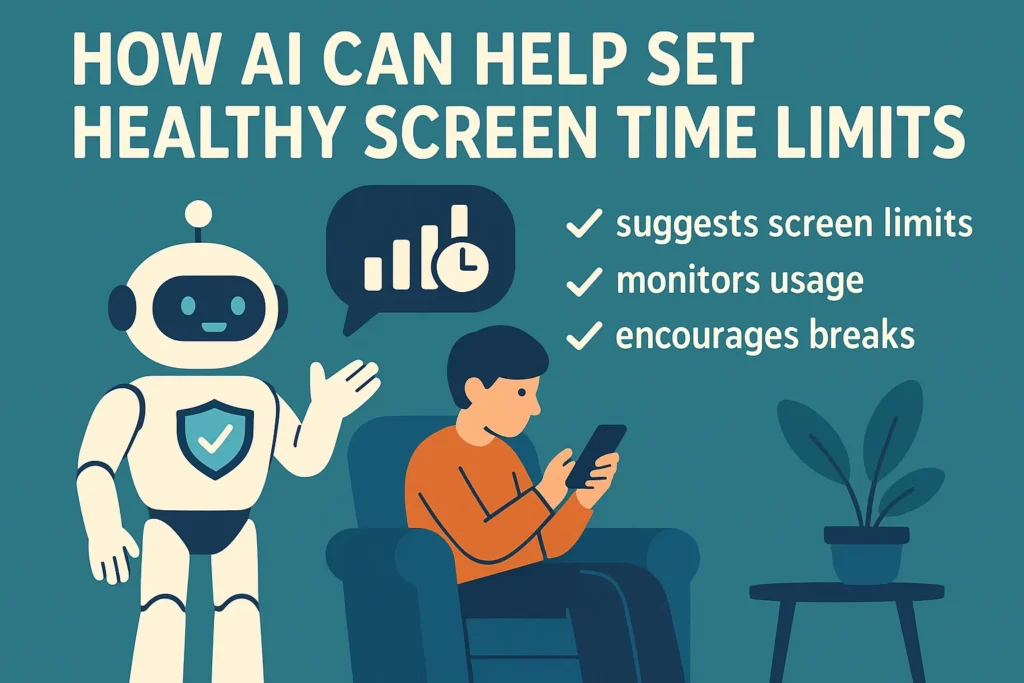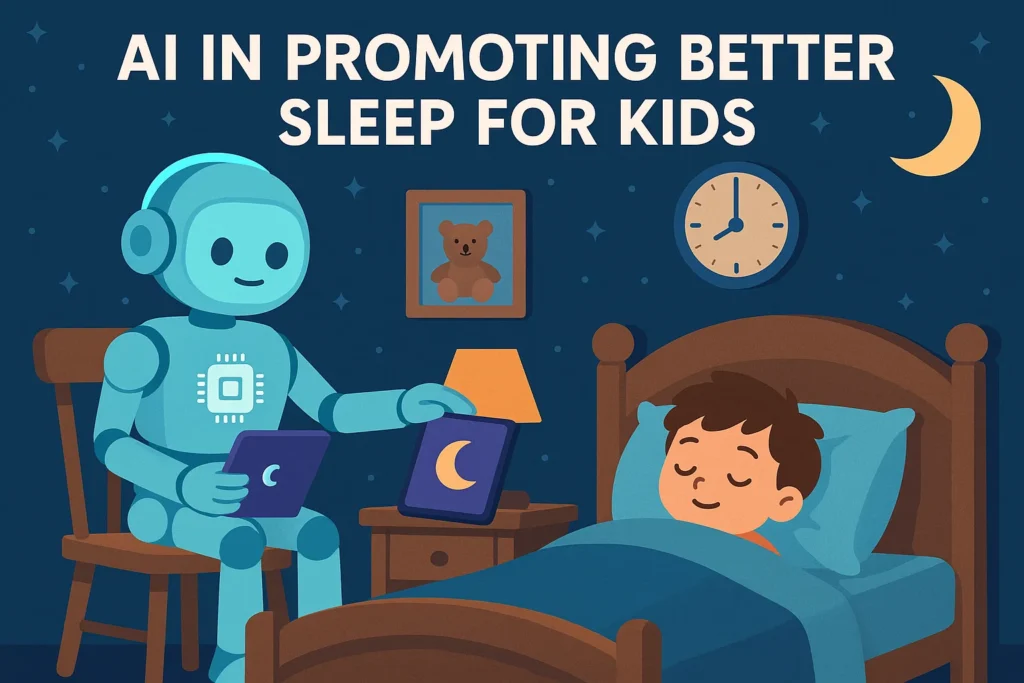📌 Introduction
Technology is everywhere, and while it can be educational, too much screen time often leads to unhealthy habits. Many parents struggle to manage their kids’ digital usage effectively. The good news is that AI to reduce tech addiction in children is making a difference. At AiBlogQuest.com, we explore how AI-powered tools help families build better digital balance, ensuring kids enjoy the benefits of technology without becoming overly dependent on it.
✅ 7 Smart Ways AI to Reduce Tech Addiction in Children Works
-
Personalized Screen Time Limits
AI sets custom rules for each child based on their age, schoolwork, and habits. -
Smart Break Reminders
AI nudges kids to take healthy breaks, promoting offline play and rest. -
Content Filtering
AI prioritizes educational apps while limiting addictive entertainment platforms. -
Habit-Tracking Reports
Parents get insights into how kids spend time online and offline. -
Gamified Rewards
AI apps encourage offline activities (like reading or outdoor play) by unlocking digital rewards. -
Adaptive Adjustments
Screen time rules evolve with school schedules, weekends, and holidays. -
Wellness Monitoring
AI tracks mood and sleep patterns, alerting parents when overuse might harm health.
⚖️ Why Parents Need AI for Tech Balance
Unlike manual restrictions, AI to reduce tech addiction in children uses real-time learning. Instead of rigid cut-offs, it encourages healthy patterns by rewarding balance and self-control.
🚀 The Future of AI in Digital Wellness
In the coming years, AI will evolve into family digital wellness coaches, capable of predicting when kids may be developing addictive patterns and offering personalized solutions before problems escalate.
🔗 Useful Links – AiBlogQuest.com
-
AI Tools to Balance Kids’ Online and Offline Time
-
AI Screen Time Limits – Healthy Digital Habits
❓ FAQ
Q1: Can AI completely stop tech addiction in children?
No, but it can reduce risks by guiding healthier digital routines.
Q2: Are AI apps safe for kids’ data?
Yes, when chosen from trusted providers that follow strict privacy standards.
Q3: Do AI tools work better than traditional parental controls?
Yes. AI adapts dynamically to a child’s needs, unlike rigid time limits.
Q4: Can AI tools help teens as well as young kids?
Absolutely. AI adjusts to different age groups, offering age-appropriate balance.



